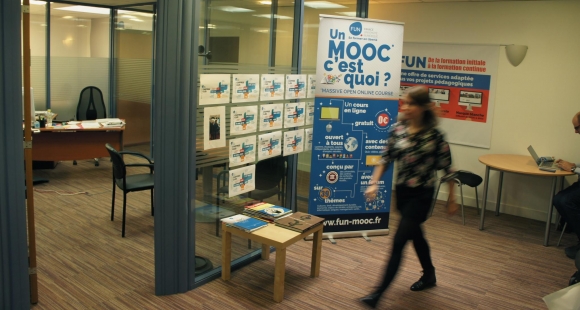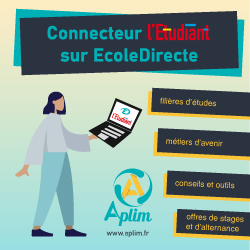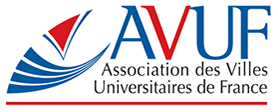
France Digital University (FUN) is four. Founded by the Ministry of Higher Education and Research, the platform has expanded from ten schools and 25 courses to 104 schools and over 330 courses. FUN was built with Open edX. Staff includes five developers and eight advisors, who make up the Network and Project Relations Department (D2RP). For D2RP head Céline Lecoq, FUN "plays the role of community facilitator and manager."
The advisors help schools run their MOOCs from start to finish and answer any technical questions. However, FUN staff don't create the courses themselves. That deters some instructional designers from applying. Drawbacks aside, the D2RP team boasts expertise in areas including archives, anthropology, e-learning and cognitive psychology.
From Campus to Corporate
FUN's growth has pushed the platform to review its business model and expand its offerings. While some say MOOCs won't last long, FUN director Catherine Mongenet still believes. "There's no denying that hybrid educational tools combining digital and classroom learning are multiplying. The changes brought on by MOOCs are here to stay."
FUN recently launched FUN Campus and FUN Corporate. The first offers Small Private Online Courses (SPOCs) and the second, employee training. Cécile Cochard, head of partnerships and professional training, comments, "We can send out a call for proposals among member schools to create SPOCs for businesses. It's a virtuous model and ensures income for schools." Private-market competitors aren't pleased.
Certificates and Labels
Soon, students will be able to obtain FUN course certificates for roughly €60, thanks to a Proctor U partnership. FUN has also begun designing platforms for businesses. "Clients benefit from our expertise, educational advice, secure hosting and constant technical assistance", notes Nelly Violette, head of FUN's white label service.
These are among FUN's efforts to diversify its revenue stream. The government funds less than half of its €2.5 million annual budget and the end of its five-year commitment is near. However, Catherine Mongenet argues, "We've met our quantitative goals. The more new revenue sources we develop, the more we'll have to invest."







